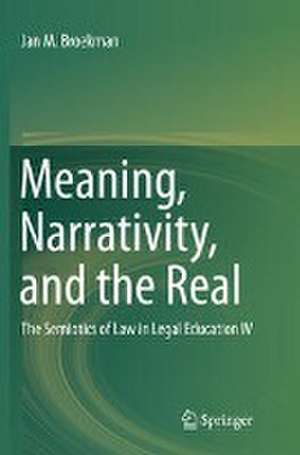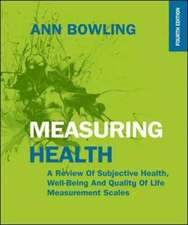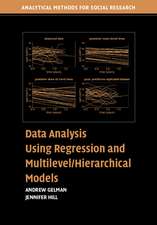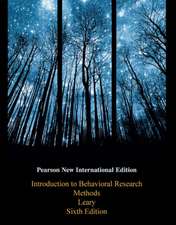Meaning, Narrativity, and the Real: The Semiotics of Law in Legal Education IV
Autor Jan M. Broekmanen Limba Engleză Paperback – 7 apr 2018
Part II of the book illustrates our generalunderstanding of reality as a matter of particles and partitioning, andexamines texts that prove that particle thinking is basic for our meaningconcept. It shows that physics, quantum theory, holism, and modern brainresearch focusing on human linguistic capabilities, confirm their ties to theparticle story. In contrast, the book concludes that partitions and particlesare neither a fact in the history of the cosmos nor a determinant of knowledgeand the sciences, and that meaning is a process: a constellation rather than afixation. This is manifest once one understands meaning as the result ofcontinuously changing attitudes, which create our narratives on cosmos andcreation. The book proposes a new key for meaning: a linguistic occurrenceanchored in dimensions of human narrativity.
| Toate formatele și edițiile | Preț | Express |
|---|---|---|
| Paperback (1) | 388.52 lei 6-8 săpt. | |
| Springer International Publishing – 7 apr 2018 | 388.52 lei 6-8 săpt. | |
| Hardback (1) | 396.02 lei 6-8 săpt. | |
| Springer International Publishing – 9 mar 2016 | 396.02 lei 6-8 săpt. |
Preț: 388.52 lei
Nou
Puncte Express: 583
Preț estimativ în valută:
74.34€ • 76.70$ • 62.04£
74.34€ • 76.70$ • 62.04£
Carte tipărită la comandă
Livrare economică 27 martie-10 aprilie
Preluare comenzi: 021 569.72.76
Specificații
ISBN-13: 9783319802893
ISBN-10: 3319802895
Ilustrații: XIV, 287 p.
Dimensiuni: 155 x 235 mm
Greutate: 0.43 kg
Ediția:Softcover reprint of the original 1st ed. 2016
Editura: Springer International Publishing
Colecția Springer
Locul publicării:Cham, Switzerland
ISBN-10: 3319802895
Ilustrații: XIV, 287 p.
Dimensiuni: 155 x 235 mm
Greutate: 0.43 kg
Ediția:Softcover reprint of the original 1st ed. 2016
Editura: Springer International Publishing
Colecția Springer
Locul publicării:Cham, Switzerland
Cuprins
Preface.- Part I Philosophy andLanguage.- Chapter 1 Silence.- Chapter2 Attitude.- Chapter 3 Word.- Part II Particles andPartition.- Chapter 4 Particles.- Chapter5 Partitions.- Chapter6 Meaning in a New Key.- SubjectIndex.- Author Index.
Notă biografică
Professor Broekman has authored more than 30 books and 500 scientific articles on law and legal theory, philosophy of medicine, contemporary philosophy, semiotics, education, culture and politics in 13 languages, including, with Penn State Law professor Larry Catà Backer: Lawyers Making Meaning, (Springer, 2013) and also with Professor Backer, Signs in Law—A Source Book (Springer, 2014).
From 2007-2013, he established and directed the Roberta Kevelson Seminar on Law and Semiotics at the Dickinson School of Law. The seminar inspired two Special Issues of the International Journal for the Semiotics of Law in 2009 and 2010. In addition, he is supervising the preparation of the Kevelson Archive, designed to provide deeper insight and research into the origins and dimensions of semiotics in U.S. law. Professor Broekman studied Social Sciences/Law in Leiden, The Netherlands, and Philosophy/Psychiatry and Education in Göttingen, Germany, where he obtained his Ph.D. in 1961. From 1961 to 1966, he was vice-director of The Hague Social Academy, The Netherlands; from 1966 to 1968, Associate Professor Contemporary Philosophy and Aesthetics at the University of Amsterdam, The Netherlands; and, from 1968 to 1996, Professor of Contemporary Philosophy at the Higher Institute of Philosophy (HIW) and Professor of Philosophy of Law, Legal Theory, and EU Law at the K.U. Leuven, Belgium. He also served as Dean of the Leuven Faculty of Law from 1988 to 1991 and Pro-Dean from 1991 to 1994.
He was a Visiting Professor of Law at the University of Illinois College of Law, Champaign/Urbana, from 1998 to 2005, where he taught Civil Law and EU Law and directed a seminar on law and bioethics. Professor Broekman was nominated an Honorary Professor at the Universidad Nacional de Argentina, Mar del Plata, Argentina, in 1991, teaching Philosophy of Law, EU/Mercosur Relations and Comparative Bioethics.
From 2007-2013, he established and directed the Roberta Kevelson Seminar on Law and Semiotics at the Dickinson School of Law. The seminar inspired two Special Issues of the International Journal for the Semiotics of Law in 2009 and 2010. In addition, he is supervising the preparation of the Kevelson Archive, designed to provide deeper insight and research into the origins and dimensions of semiotics in U.S. law. Professor Broekman studied Social Sciences/Law in Leiden, The Netherlands, and Philosophy/Psychiatry and Education in Göttingen, Germany, where he obtained his Ph.D. in 1961. From 1961 to 1966, he was vice-director of The Hague Social Academy, The Netherlands; from 1966 to 1968, Associate Professor Contemporary Philosophy and Aesthetics at the University of Amsterdam, The Netherlands; and, from 1968 to 1996, Professor of Contemporary Philosophy at the Higher Institute of Philosophy (HIW) and Professor of Philosophy of Law, Legal Theory, and EU Law at the K.U. Leuven, Belgium. He also served as Dean of the Leuven Faculty of Law from 1988 to 1991 and Pro-Dean from 1991 to 1994.
He was a Visiting Professor of Law at the University of Illinois College of Law, Champaign/Urbana, from 1998 to 2005, where he taught Civil Law and EU Law and directed a seminar on law and bioethics. Professor Broekman was nominated an Honorary Professor at the Universidad Nacional de Argentina, Mar del Plata, Argentina, in 1991, teaching Philosophy of Law, EU/Mercosur Relations and Comparative Bioethics.
Textul de pe ultima copertă
This book examines the concept of meaning and our general understanding of reality in a legal and philosophical context. Starting from the premise that meaning is a matter of linguistic and other forms of articulation, it considers the inherent philosophical consequences. Part I presents Klages’, Derrida’s, Von Hofmannsthal’s and Wittgenstein’s explorations of silence as a source of articulation and meaning. Debates about 20th century psychologism gave the attitude concept a pivotal role; it illustrates the importance of the discovery that a word is globally qualified as ‘the basic unit of language’. This is mirrored in the fact that we understand reality as a matter of particles and thus interpret the real as a component of an all-embracing ‘particle story’. Each chapter of the book focuses on an aspect of legal semiotics related to the chapter’s theme: for instance on the meaning of a Judge’s ‘Saying for Law’, on law students training in varying attitudes or on the tiesbetween law and language.
Part II of the book illustrates our general understanding of reality as a matter of particles and partitioning, and examines texts that prove that particle thinking is basic for our meaning concept. It shows that physics, quantum theory, holism, and modern brain research focusing on human linguistic capabilities, confirm their ties to the particle story. In contrast, the book concludes that partitions and particles are neither a fact in the history of the cosmos nor a determinant of knowledge and the sciences, and that meaning is a process: a constellation rather than a fixation. This is manifest once one understands meaning as the result of continuously changing attitudes, which create our narratives on cosmos and creation. The book proposes a new key for meaning: a linguistic occurrence anchored in dimensions of human narrativity.
Part II of the book illustrates our general understanding of reality as a matter of particles and partitioning, and examines texts that prove that particle thinking is basic for our meaning concept. It shows that physics, quantum theory, holism, and modern brain research focusing on human linguistic capabilities, confirm their ties to the particle story. In contrast, the book concludes that partitions and particles are neither a fact in the history of the cosmos nor a determinant of knowledge and the sciences, and that meaning is a process: a constellation rather than a fixation. This is manifest once one understands meaning as the result of continuously changing attitudes, which create our narratives on cosmos and creation. The book proposes a new key for meaning: a linguistic occurrence anchored in dimensions of human narrativity.
Caracteristici
Of particular interest to students and practitioners interested in the concept of meaning and the understanding of reality in a legal context Is the first study of "Meaning" as a process, not based on the atomistic concept of reality as a matter of particles Offers a surprising discovery: the word is globally qualified as ‘the basic unit of language’ because we view reality as a matter of particles Shows the relevance of meaning for law and semiotics, based on philosophy, physics and the arts













